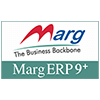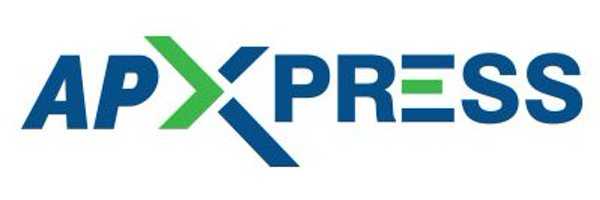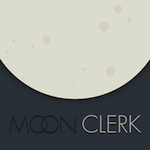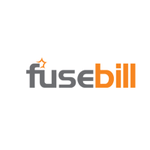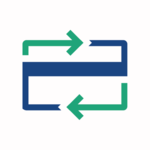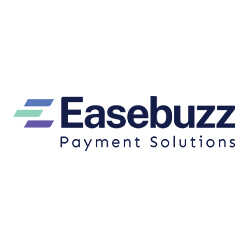What Is Recurring Billing Software?
regular billing software is an effective tool for automating and streamlining the process of invoicing and charging consumers for regular payments. Simply said, it enables businesses to set up and handle regular payments from their customers. This could include subscriptions, membership fees, continuous services, and other sorts of recurring transactions.
Businesses that use recurring billing software can save time and costs by removing the need for manual invoicing and follow-up. The software securely retains customer information and payment details, allowing for automatic billing based on a predefined schedule. This not only increases productivity and precision, but also lowers the possibility of human error.
One of the most significant benefits of adopting recurring billing software is its ability to create a consistent and convenient experience for both businesses and customers. Customers may easily set up regular payments and have peace of mind knowing that their payments will be completed on schedule. Businesses, on the other hand, may rely on the software to handle the full billing process, from invoice generation to payment collection, with no user intervention required.
Furthermore, recurring billing software has adjustable features such as billing cycles, payment methods, and price plans, making it adaptable to a variety of business types and requirements. It also works with other vital tools like accounting software, CRM systems, and payment gateways, which improves its functionality and convenience of use.
From a financial standpoint, recurring billing software can help firms improve cash flow and revenue predictability. Businesses that receive a consistent stream of recurrent payments can better estimate and organize their finances, lowering the risk of uncertainties and cash flow gaps.
What Are The Recent Trends In Recurring Billing Software?
In recent years, recurring billing software has gained popularity among businesses of all kinds. This software enables organizations to automate the recurring billing process for goods or services, saving time and expediting the payment process for both businesses and consumers. With the advent of subscription-based business models and an increasing need for seamless, hassle-free payment solutions, the recurring billing software industry is likely to expand significantly in the coming years.
One of the most noticeable changes in the recurring billing software business is the shift to cloud-based solutions. Cloud-based software enables organizations to access their systems from anywhere and at any time, eliminating the need for costly hardware expenditures and upkeep. This not only increases productivity and flexibility, but also lowers total expenses for organizations.
Another development in recurring billing software is the integration of numerous payment methods. Customers increasingly anticipate a wide range of payment options, including credit cards, debit cards, e-checks, and mobile wallets. To remain competitive, recurring billing software companies are creating systems that enable a variety of payment ways, allowing businesses to better adapt to their customers' payment preferences.
With an increased emphasis on data security and privacy, recurring billing software companies are improving their security features. These include enhanced encryption, adherence to worldwide data privacy rules, and fraud detection and prevention systems. These additional security precautions give businesses and their consumers peace of mind when making recurring payments.
In addition to these trends, recurring billing software suppliers are expanding their offerings and capabilities. These include flexible billing schedules, automatic invoicing, customer management, and reporting and analytics. Many providers also offer interfaces with other company software, such as accounting, CRM, and e-commerce, to help organizations streamline and automate their procedures.
Benefits Of Using Recurring Billing Software
Recurring billing software, commonly known as subscription billing software, is an essential tool for firms that generate recurring revenue. This program automates the process of charging consumers on a regular basis, allowing businesses to optimize billing processes and manage cash flow more effectively.
Let's explore, we'll look at the benefits of adopting recurring billing software and why it's essential for businesses trying to expand and flourish.
1. Automates Billing Processes: One of the primary advantages of recurring billing software is that it automates billing procedures. This means you won't have to manually write and send invoices every month, freeing up time for you and your staff to focus on other critical activities. The software generates recurring invoices according to the schedule you specify, saving you time and reducing the possibility of human error.
2. Ensures Accurate Billing: Recurring billing software can also help to assure correct billing. Traditional manual billing carries a larger chance of errors, such as wrong amounts or missing invoices. This can result in delayed payments or client complaints. Recurring billing software standardizes and automates the billing process, reducing the likelihood of errors and guaranteeing that clients are billed accurately and on time.
3. Improves Cash Flow Management: For firms that rely on recurring revenue, monitoring cash flow can be difficult. Recurring billing software can assist firms in better managing cash flow by offering real-time visibility into upcoming payments and revenue. With this knowledge, organizations may make better decisions and plan for any cash flow deficits.
4. Improves Customer Experience: Recurring billing software can also enhance the client experience. Customers are becoming more accustomed to making automated payments for services or items they use on a daily basis. Businesses that use recurring billing software can provide a convenient and seamless payment experience to their customers. This not only enhances customer pleasure, but also raises the likelihood of client retention in the long term.
5. Integrates With Other Business Systems: Recurring billing software frequently connects with other corporate systems, including accounting software and customer relationship management (CRM) tools. This interface makes the billing process more streamlined and effective by automatically syncing information between systems, eliminating the need for human data entry and lowering the possibility of errors.
Important Factors To Consider While Purchasing Recurring Billing Software?
When it comes to choosing recurring billing software, there are numerous key elements to consider to ensure that you get the best option for your company. Every facet of the program, from functionality and customization possibilities to pricing and customer service, is critical to establishing its worth and efficacy.
Let's explore, we'll go over the most important elements to consider when selecting recurring billing software, so you can make an informed selection.
1. Core Functionality: The first and most important consideration is the software's core functionality. You must ensure that the software you select includes all of the capabilities necessary for handling your recurring billing, such as subscription management, automatic invoicing, payment processing, and reporting. It should also be scalable to allow for future expansion of your business.
2. Customization Options: Each organization has its own set of requirements, and your recurring billing software should be adaptable to those demands. Look for software that allows you to customize things like billing plans, invoicing, and branding aspects. This will allow you to modify the program to your own business requirements.
3. Integration Capability: Your recurring billing software should be able to work easily with your existing systems, including CRM, accounting, and payment gateways. This not only improves the efficiency of your billing process, but also ensures data correctness and consistency across all of your platforms.
4. Pricing: The cost of software is a critical factor for any firm. While some recurring billing software may accept a one-time payment, others may demand a monthly or annual membership. To establish the software's value to your firm, you must weigh its features and benefits against its price.
5. Customer Assistance: A dependable customer assistance system is required if you face any technical problems or have inquiries regarding the product. Look for software that provides various channels for customer assistance, such as email, phone, and live chat, and make sure the response time is acceptable to you.
6. Security And Compliance: The program stores sensitive client and payment information, thus security and compliance are critical. Ensure that the software adheres to industry-standard security protocols and complies with regulations such as GDPR and PCI DSS.
7. User-Friendliness: As a business owner, you will use the recurring billing software on a regular basis. As a result, the program must be simple to use and intuitive. Consider acquiring a sample or free trial of the product to evaluate its usability and interface.
Keeping these aspects in mind will help you limit down your selections and select the finest recurring billing software for your business. Remember to conduct extensive research, read reviews, and weigh several choices before making a final decision. With the appropriate recurring billing software, you can streamline your billing process while focusing on business growth.
What Are The Key Features To Look For In Recurring Billing Software?
Recurring billing software is an essential tool for firms that operate on a subscription basis. It enables the automation of billing operations, making it easier for businesses to collect payments from their clients on a consistent basis. With so many recurring billing software options on the market, it can be difficult for purchasers to identify which one is best for their organization.
To make an informed decision, below are the essential characteristics to look for in recurring billing software:
1. Automated Billing And Invoicing: The main purpose of recurring billing software is to automate the billing and invoicing processes. Look for software that allows you to automatically generate and deliver invoices to customers on a set schedule. This will save you time and effort by ensuring that your clients are consistently billed and that you are paid on schedule.
2. Multiple Payment Options: Your recurring billing software should accept a variety of payment methods, including credit and debit cards, ACH transfers, and electronic checks. This allows your consumers to choose the payment option that is most convenient for them. It also decreases the likelihood of payment failures or delays, resulting in a seamless billing experience for both you and your clients.
3. Customizable Payment Plans: Every business has a unique subscription model, and your billing software should be able to support it. Look for software that allows you to build payment plans that are tailored to your specific business needs. This allows you to offer your consumers a variety of pricing alternatives, such as monthly, quarterly, or yearly.
4. Dunning Management: Dunning is the process of delivering reminders and notices to clients who have failed or delayed payments. Your recurring billing software should have a sophisticated dunning management system, which automates the money collection process and reduces the likelihood of delinquent clients.
5. Integration With Other Tools: Look for recurring billing software that works with other tools you already use, such accounting software, CRM, or email marketing platforms. This will allow you to improve your productivity, decrease manual data entry, and create a more coherent system for handling your company's money.
6. Analytics And Reporting: A solid recurring billing software should give you insights and data on your subscription revenue, customer churn rate, and other key indicators. This will allow you to make data-driven decisions to optimize your subscription model and increase earnings.
7. Security And Compliance: With recurring billing, you will be handling sensitive customer and payment information. To secure your clients' data, ensure that the software you use is PCI compliant and employs SSL encryption.
Why Do Businesses Need Recurring Billing Software?
Recurring billing is a payment technique that allows businesses to automatically charge their consumers on a predetermined schedule, typically monthly, quarterly, or annually. This convenience has grown in popularity in recent years, with firms across a wide range of industries implementing recurring billing models to produce consistent and predictable revenue streams. However, managing recurring billing may be a difficult process for firms, especially those with a big customer base. This is where recurring billing software comes in, offering a streamlined and automated way to manage subscriptions, memberships, and other recurring payments.
Apart from making the payment process easier, here are five reasons why organizations want recurring billing software.
1. Improved Cash Flow Management: One of the primary advantages of using recurring billing software is the enhanced cash flow management it provides. Businesses that use a fixed payment schedule may precisely estimate and plan their finances, making it easier to manage spending and make financial decisions. This eliminates the need to chase late payments or wait for checks to clear, allowing businesses to focus on development and profitability.
2. Increased Efficiency: Recurring billing software reduces the need for manual invoicing and enables automated billing and payment collection. This not only saves time and labor, but also lowers the possibility of human error. Furthermore, it gives convenience to customers, making it easier for them to make payments and lowering the likelihood of lost or late payments. This results in enhanced customer satisfaction and retention.
3. Flexibility And Customization: Every firm has distinct billing requirements, and recurring billing software allows you to tailor billing plans and schedules to those needs. Businesses can create several plans and price alternatives, give discounts and promotions, and change payment frequencies to suit their consumers' needs. This level of customisation can help you attract and retain clients while also keeping them satisfied with the payment procedure.
4. Integration With Other Systems: Recurring billing software can be integrated with other systems such as accounting, customer relationship management (CRM), and payment gateways to provide a unified experience for businesses and customers. This integration reduces the need for manual data transfers between systems, lowering the risk of errors and saving time and effort.
5. Enhanced Security: Businesses prioritize the protection of sensitive client data, and recurring billing software can provide a safe platform for payment processing. Most software has strong security features, such as data encryption, secure payment gateways, and fraud detection, to protect client information and prevent unauthorized access.
How Much Time Is Required To Implement Recurring Billing Software?
The time required to establish recurring billing software varies based on a number of factors, including the software's complexity, the size of your firm, and the level of customization necessary. However, with adequate planning and preparation, the implementation process can be done quickly and efficiently. On average, it takes a few days to a few weeks to properly integrate recurring billing software.
The first step in the implementation process is to carefully evaluate your company's demands and establish which features and capabilities are critical to its success. This study will assist you in selecting the most appropriate recurring billing software for your needs. Once you've decided on the software, the following step is to create an account and setup the essential parameters.
This often include entering your company information, payment options, billing plans, and establishing your client database. This may usually be accomplished in a day or two, depending on the size of your company. The next step is to integrate the recurring billing software with your existing systems. This might include your CRM, accounting software, or e-commerce platform.
Most recurring billing software has connectors with popular platforms, making the process quick and simple. Once the software has been integrated, it is critical to test and fine-tune the system before going live. This includes conducting a variety of scenarios, such as setting test subscriptions, issuing dummy invoices, and processing payments. This critical step ensures that the software is properly configured and functions as planned.
Once testing is completed, it is time to officially deploy the software. Before launching, you must communicate the change to your team and train them on how to utilize the new program. This training can last anywhere from a few hours to a few days, depending on the software's complexity and the number of participants.
What Is The Level Of Customization Available In Recurring Billing Software?
regular billing software is a valuable tool for businesses of all sizes since it automates the process of collecting regular payments from consumers. However, not all recurring billing software is made equally. The level of customisation provided is an important consideration when selecting the best software for your organization. This is a significant consideration because it allows you to adjust the software to your own business requirements and procedures.
First and foremost, most recurring billing software will provide some level of flexibility. This includes the option to add your own branding, make unique payment schedules, and configure various price schemes for your products or services. However, the amount to which these functions can be customized varies widely depending on the software.
Some software may provide minimal customization options, such as adding your company logo and changing the color scheme of the checkout page. This may be sufficient for organizations with simple billing structures and limited customisation requirements. However, for more sophisticated firms, it is critical to select software that provides a greater level of customisation.
A decent recurring billing software should let you customize the payment procedure to meet your specific business demands. This includes setting up billing cycles, payment terms, and fees for various payment methods. You should also be able to offer discounts and promotions to your customers, as well as generate configurable reports to track your recurring revenue.
Furthermore, some applications may provide integration with other products and platforms that you use for business. CRM systems, accounting software, and email marketing platforms are some examples of this. Integrating with these solutions allows you to further tailor your billing and payment processes while also streamlining your business operations.
When determining the extent of customisation in recurring billing software, it is also important to consider the user interface and experience. A user-friendly interface that allows for quick customization can save you time and effort while providing a pleasant billing experience for both you and your clients.
Which Industries Can Benefit The Most From Recurring Billing Software?
Industries that use a subscription model or provide repeating services can considerably benefit from employing recurring billing software. This sort of software automates the process of invoicing and collecting payments on a regular basis, saving time, decreasing errors, and increasing cash flow. The e-commerce industry can profit from recurring billing software.
With the rise of internet shopping, many firms now provide subscription-based services or items, such as monthly subscription boxes or software licenses. Recurring billing software can assist these firms in effortlessly managing and tracking their recurring payments, delivering a seamless experience for both the company and its consumers. Another business that can profit from recurring billing software is the subscription-based services sector, which includes beauty and wellness subscription boxes, meal delivery services, and streaming services.
These enterprises may have a huge number of subscribers, necessitating a fast billing procedure to assure prompt payments and client satisfaction. Recurring billing software can automate the billing process and give real-time reporting and analytics, allowing businesses to gain a better understanding of their customers and enhance their products. SaaS companies can also profit from employing recurring billing software.
With software as a service growing more popular, these organizations frequently have a large number of clients and require a dependable and effective solution to process their recurring payments. Recurring billing software may interact with a variety of payment ways, provide configurable plans, and manage complex billing scenarios, making it an indispensable tool for SaaS organizations.
Furthermore, businesses that provide memberships or continuous services, such as gyms, clubs, and educational programs, can profit from recurring billing software. This type of software can automate the renewal and invoicing process for memberships, allowing organizations to better retain consumers and track income.
Conclusion
Final Thoughts About Recurring Billing Software After examining and investigating numerous recurring billing software alternatives, it is evident that this technology is an invaluable resource for organizations of all sizes and industries. Whether you are a tiny startup or a huge corporation, having a dependable and efficient system for managing recurring payments can significantly improve your business operations.
Throughout this buyer's guide, we've covered the most important elements to consider when selecting recurring billing software, such as customization possibilities, integrations, pricing, and customer support. It is critical to carefully examine your specific company requirements and select software that best meets those objectives. Consider the size of your consumer base, the payment methods available, and your budget.
In addition, we've offered a review of some of the best recurring billing software alternatives on the market, each with its own set of features and benefits. Every organization can benefit from a software solution, from Zoho Subscriptions' strong capabilities to Chargebee's user-friendly interface.
To summarize, investing in dependable recurring billing software not only streamlines your payment process but also increases client satisfaction by giving a smooth and hassle-free experience. Take your time researching and comparing several choices to find the best fit for your business. We hope that this buyer's guide has helped you make an informed selection and take your business to the next level.



